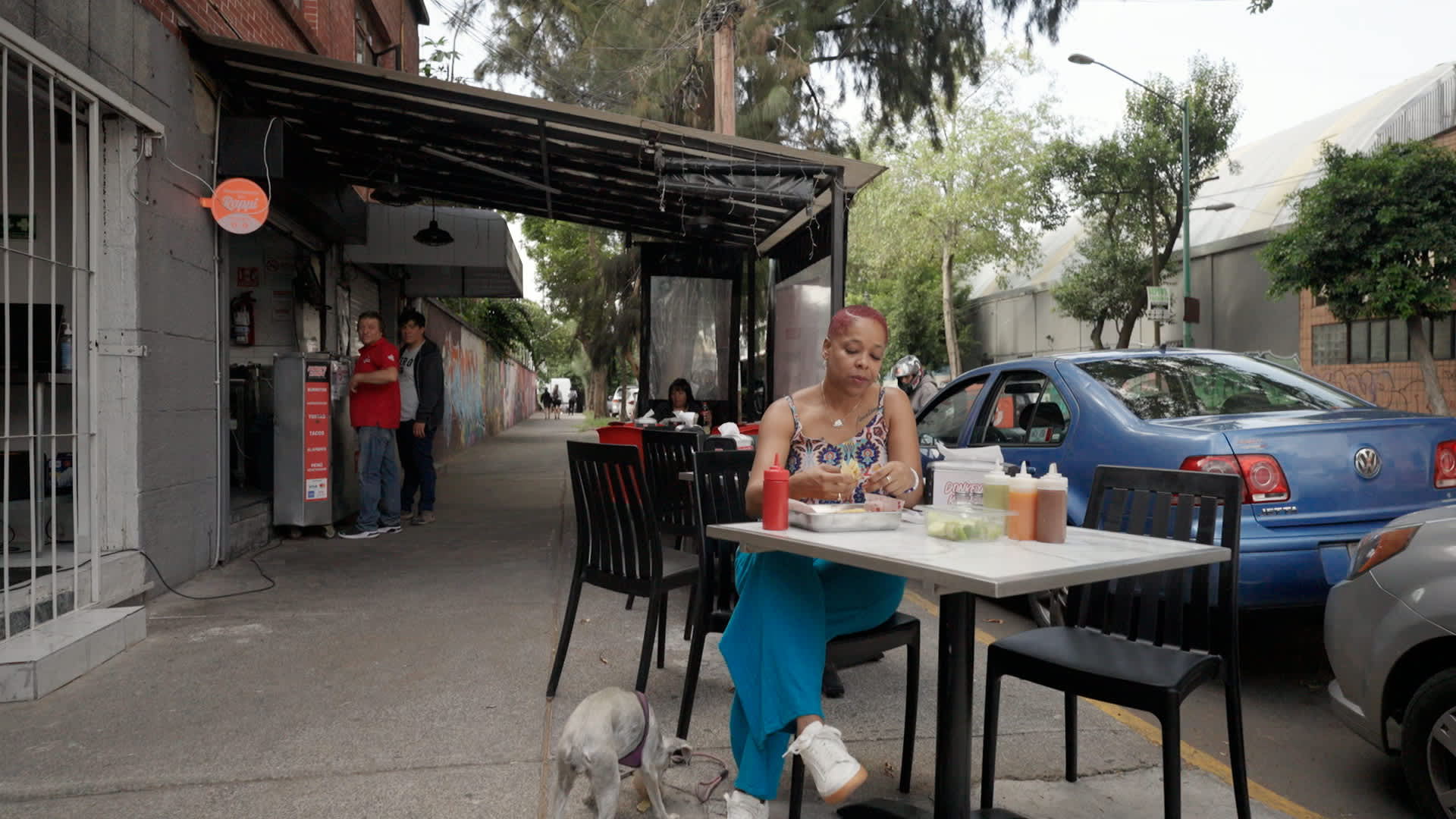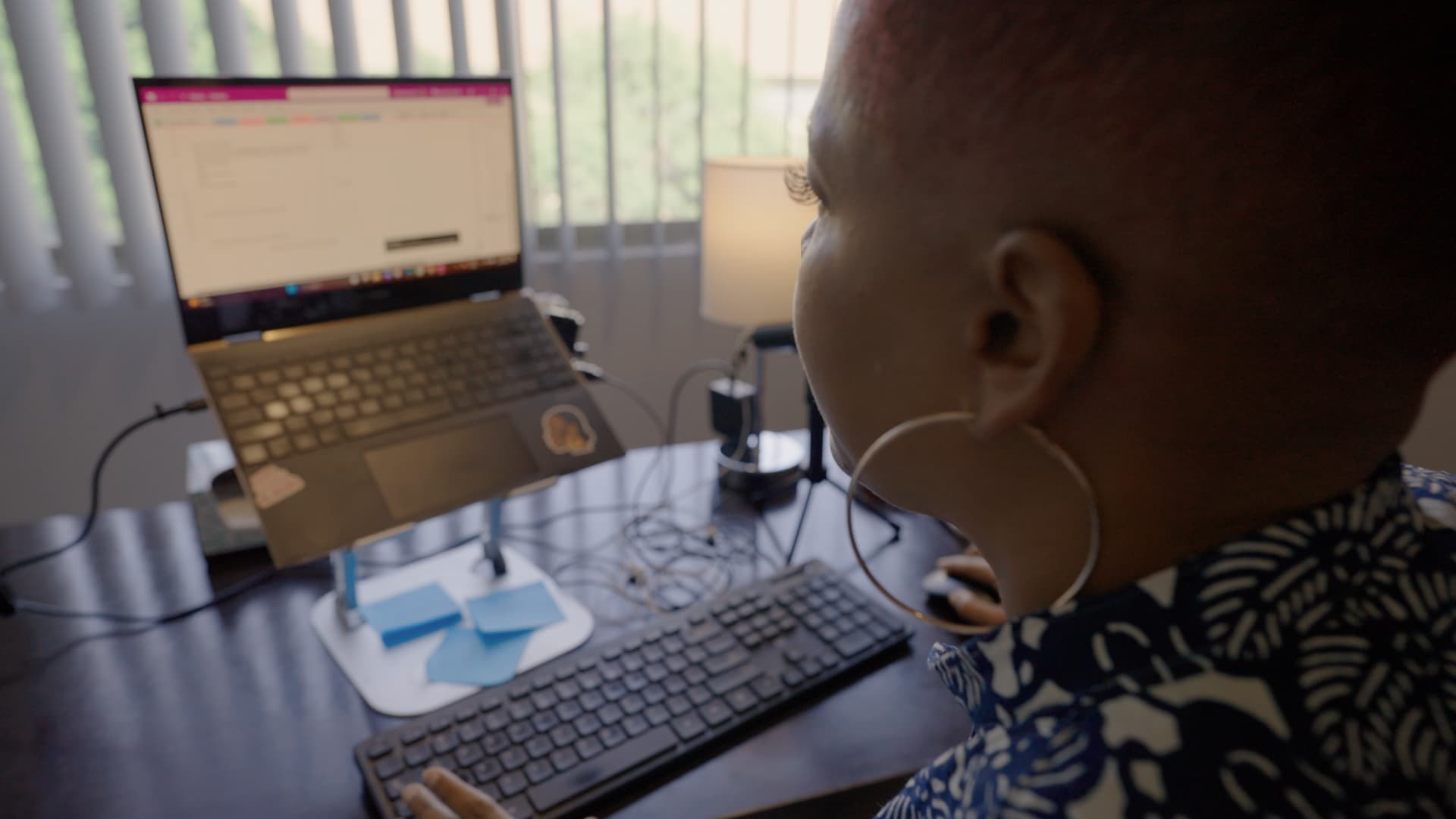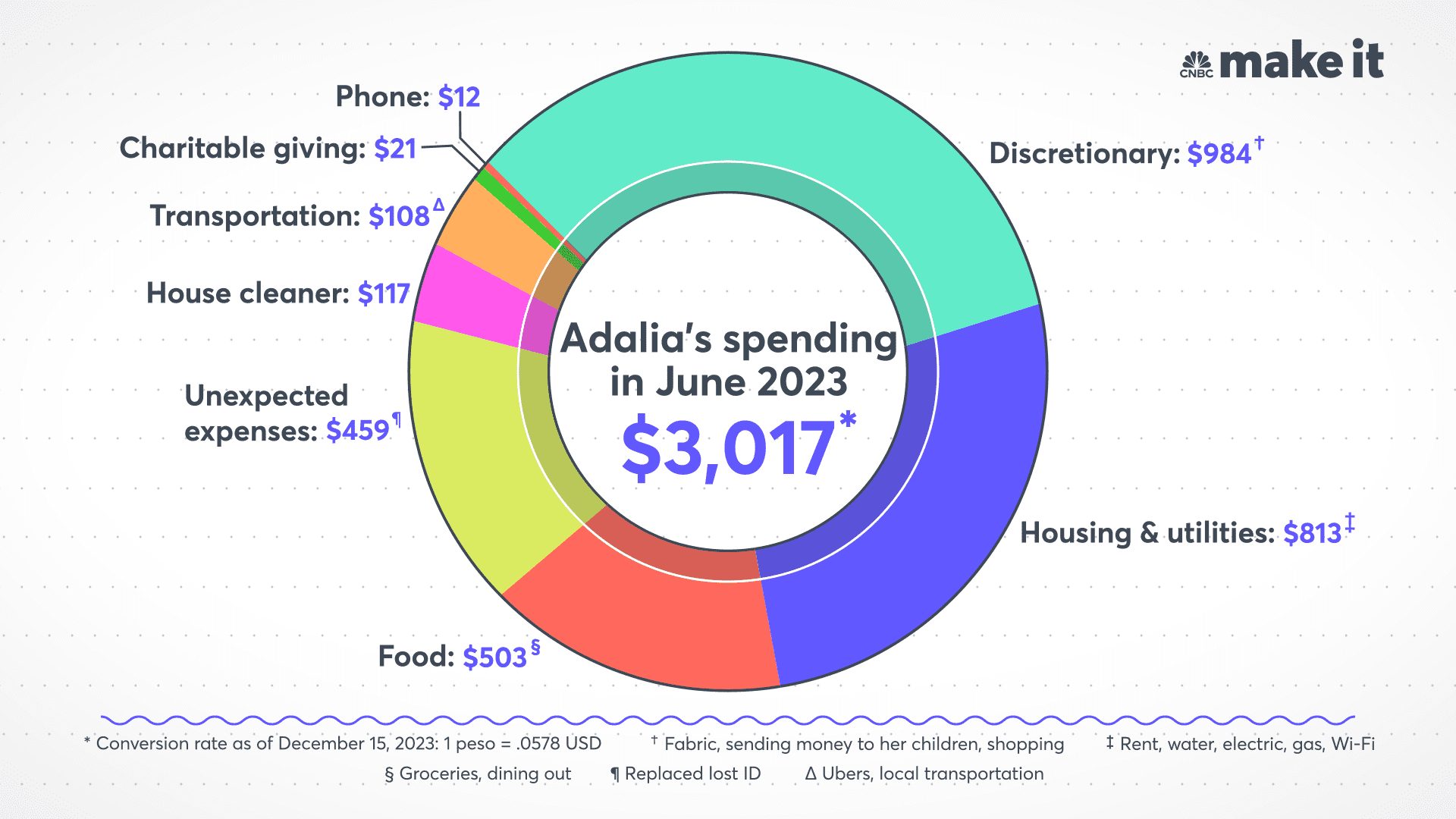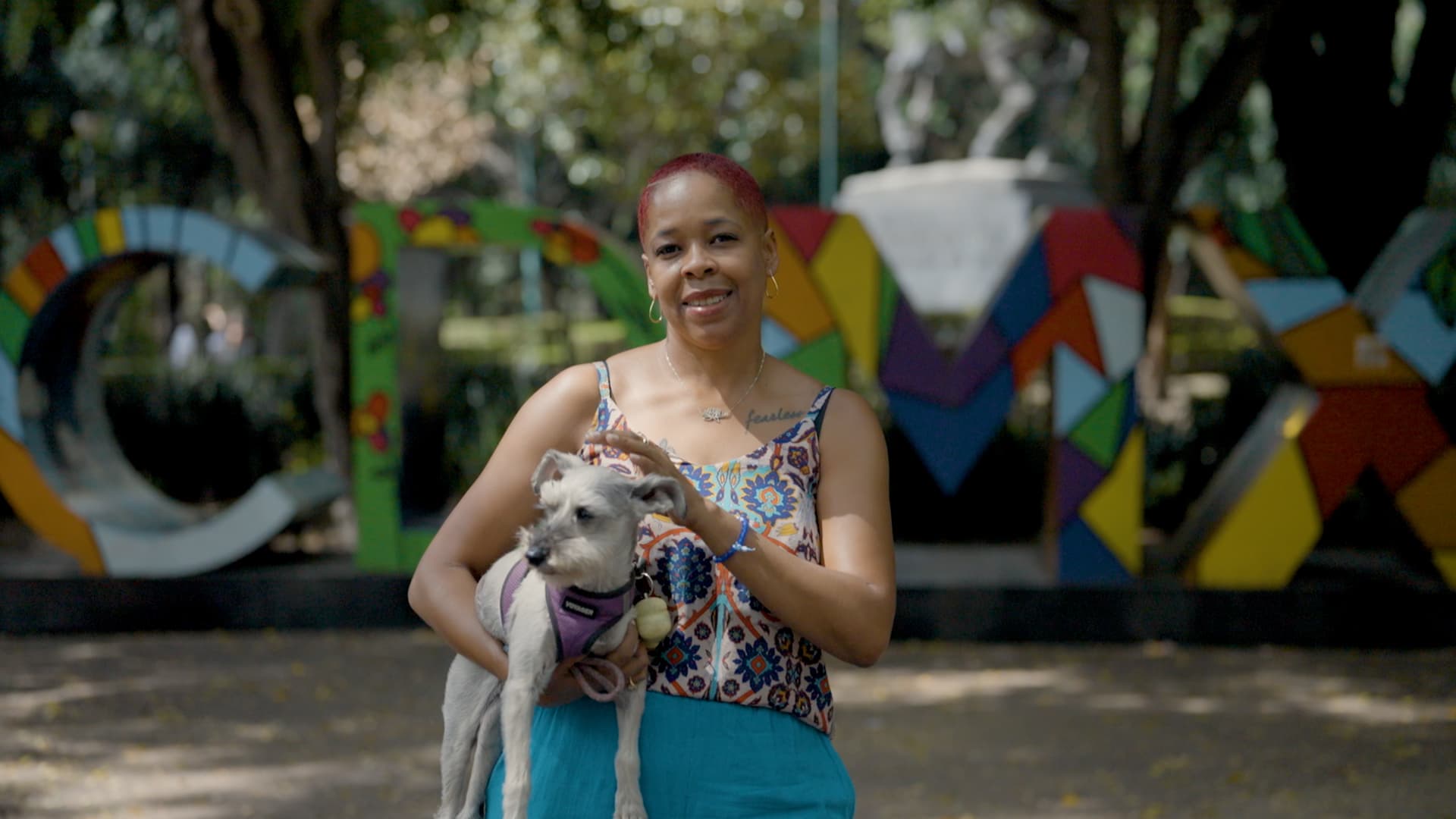
This is a Gen X edition of CNBC Make It's Millennial Money series, which details how people around the world earn, spend and save their money.
After nearly 20 years primarily teaching high school social studies, geography and history in Texas public schools, Adalia Aborisade felt burnt out.
She was earning around $60,000 and had many of the material markers of success, including a four-bedroom house and multiple cars. But she couldn't enjoy it, she says, because she was working 60 hours or more a week teaching classes, grading assignments and managing extracurricular activities for the students.
"I had the house, the cars, the kids, I did all of that," she tells CNBC Make It. "But even achieving those things, it still seemed like it wasn't enough."
Get San Diego local news, weather forecasts, sports and lifestyle stories to your inbox. Sign up for NBC San Diego newsletters.
After getting divorced around the time she turned 40, Aborisade questioned whether she was happy with her life. It turns out she wasn't — so she decided to make a change.
In 2016, she landed a two-year contract as a technology integration director at a school in Honduras, where she helped teachers find new ways to engage students through technology and taught one advanced placement course. She ended up parting ways with the school in 2017 when it wanted to increase her course load, but not her pay.
Aborisade knew she didn't want to stay in Honduras long term so, she planned a visit to Mexico City to see if it was a good fit for her next destination. It was love at first sight.
Money Report
She moved there in 2017 before taking a few more teaching jobs abroad in China and Kuwait. She moved back to Mexico City in 2020 and decided to call it her permanent home.
"I wanted to live someplace in Latin America where I could continue to improve my Spanish," she says. "I wanted a city that was walkable and had mass transit and had a strong international airport."
She went on to start her own business, "Picky Girl Travels the World," through which she offers individualized financial coaching, relocation assistance and retreats. The now 48-year-old earned $38,000 in 2023. It's less than she made teaching, but she sets her own schedule, which she limits to around 15 hours a week.
It's been a worthwhile trade-off. "I'm less stressed and overall, my life is just filled with much more positivity and joy," Aborisade says. "I love my life."
Leaving the U.S. to live abroad
As a teacher, Aborisade enjoyed when her students had "light bulb" moments where she could see they had really connected with the material.
But the job was stressful. "It was all just too much," she says. "The workload, the amount of time I was expected to work. And I was trying to have a life outside of work."
She knew she needed to make a change. "I was cratering under the weight of all of the expectations that were on me as a teacher."

Around the time she was beginning to feel more and more burnt out, she noticed that she would soon be finished paying off her car and the lease for her home. It was an ideal time to finally look into living abroad, something she had always wanted to do.
So in 2016, she took the job in Honduras and left the U.S. behind.
Aborisade still remembers the first time she visited Mexico City in 2017. "Once I got here and fell in love with the place, I said, 'OK, this is where I want to live,'" she says. She adored the city's many restaurants, laid-back vibe and "unexpectedness."
"You may see someone riding down the street on a unicycle in a genie costume and that's just a Tuesday. I love that," she says.

Teaching jobs don't pay a lot in Mexico City, Aborisade says, so she decided to work for herself instead. She became a financial coach and launched her website and YouTube channel, "Picky Girl Travels the World" where she discusses financial literacy, her life abroad and solo travel.
She charges about $2,000 for six months of one-on-one support for those who want to relocate and live abroad, and around $2,400 for six months of one-on-one financial coaching and mentoring. Aborisade also offers free resources like "The Ultimate Move Abroad Checklist" and a guide on what not to do while teaching abroad.
Her YouTube channel, which has close to 20,000 subscribers, provides another stream of income. She often live streams from her channel and facilitates discussions centered around living abroad and financial literacy.
Life in Mexico City
After residing in four countries, Aborisade says her quality of life in Mexico City is better than any place she's ever lived.
"My days are filled with exploring the city, visiting museums, trying new cafes and restaurants, attending various events that the city puts on," she says.
She also says she feels much safer than she did in the U.S., despite Mexico's significantly higher crime rate. "I am not afraid of dying in random gun violence," she says. "The odds that I will be murdered by the police are virtually non-existent."

Another benefit of life in Mexico City: her cost of living went down.
Although Aborisade's income varies from month to month, she doesn't necessarily feel the need to stick to a strict budget. She makes sure her financial priorities, like rent and utilities, are taken care of first and aims to pay off her credit card bills each month, but doesn't worry about how the rest of her money is spent.
"I don't budget," she says. "There are some people who need it and some people who don't and I am one of those people who who doesn't."
Since she still makes money in U.S. dollars, she says more necessities and luxuries are within her reach in Mexico City. She paid a little over $1,800 for her private health insurance plan for the year — far less than she would owe in the U.S. She's also able to have her barber come to her home to cut her hair and have someone clean her house once a week.
However, since she's aware that some locals believe that the influx of Americans relocating to Mexico City is driving up prices and squeezing out Mexicans, she made sure to rent from a local landlord and tries to support the local economy as much as possible.
But it hasn't been all upside. Her two children and three grandchildren still live in the U.S. Living so far away, Aborisade can't always be there for their birthdays and other events.
How she spends her money
Here's how Aborisade spent her money in June 2023.

- Discretionary: $984 for fabric she uses to make her own clothes, sending money to her children and shopping
- Housing and utilities: $813 for rent, utilities and Wi-Fi
- Food: $503 for groceries, dining out and treating her friends to a group birthday dinner
- Unexpected expenses: $459 to replace lost ID card and documents
- House cleaner: $117 to have her apartment cleaned once a week
- Transportation: $108 for Ubers and local transportation
- Charitable giving: $21 for donations to local nonprofit organizations
- Phone: $12 for phone service
Throughout the year, Aborisade also spent around $4,500 on business expenses, including flights to the wellness retreats she helps organize, her Zoom video conferencing membership and maintaining her own website.
She has significant retirement savings as well: $545,000 as of December 2023.
Aborisade doesn't cook a lot and enjoys trying new restaurants. In June, her spending on dining out was a little higher than usual because she treated a group of friends to a birthday dinner, she says. Typically, she doesn't spend more than $20 on a meal, including both an entrée and a cocktail.

And although some things may appear to be less expensive in Mexico than the U.S., that's not always the case. A 16% tax is added to the cost of imported goods, which means something like a standard desk lamp may cost the equivalent of $100, she says.
But overall, even though Aborisade brings in less than she made while she was teaching in the U.S., she feels less stressed about her finances.
No plans to return to the U.S.
For now, there's no place Aborisade would rather be than Mexico City. One thing she's certain of: She doesn't plan to return to the U.S.
"When I think about the future, Mexico City is home. It is my adopted home, so I expect to be here forever," she says.

She says she'll always teach in some form, like through her YouTube channel, but she doesn't think it's possible for teachers to achieve a good quality of life in the U.S. due to their salaries.
Public school teachers in the U.S. earned an average of $66,745 during the 2021-2022 school year, according to the National Education Association. However, the organization says average teacher pay has declined by about 6.4% over the past decade.
For now, Aborisade plans to continue enjoying her life in Mexico City.
"I have found and ultimately achieved the American dream outside the U.S., here in Mexico, where I can have a life I enjoy and not be stressed out all of the time."
What's your budget breakdown? Share your story with us for a chance to be featured in a future installment.
DON'T MISS: Want to be smarter and more successful with your money, work & life? Sign up for our new newsletter!
Get CNBC's free Warren Buffett Guide to Investing, which distills the billionaire's No. 1 best piece of advice for regular investors, do's and don'ts, and three key investing principles into a clear and simple guidebook.






